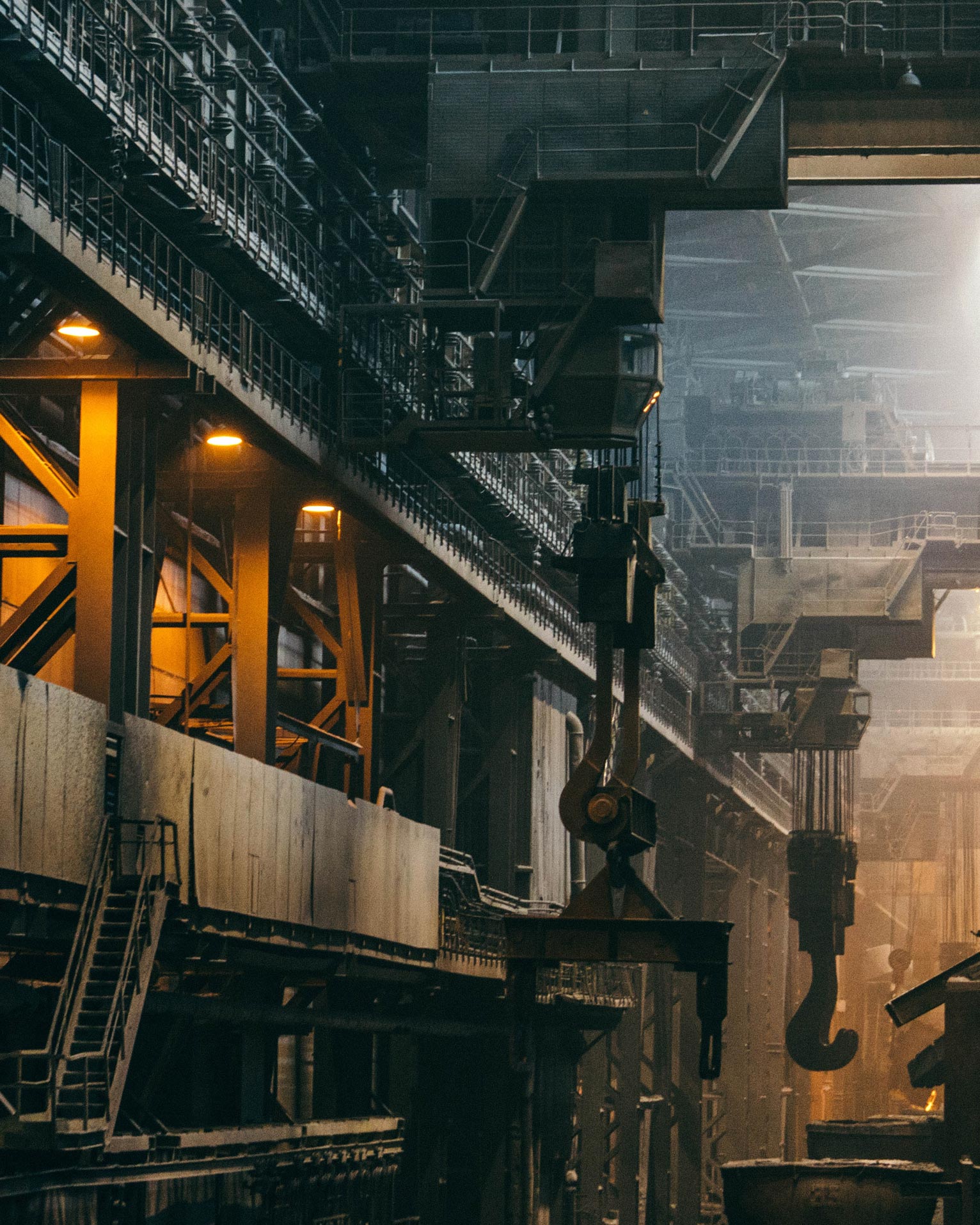Direkt zu
US trade policy
During Trump's first term in office, the US increased tariffs on many trading partners. From an economic perspective, the measures were not a success. A new study by David Dorn and co-authors shows that the trade policy was nevertheless favorable for the Republican Party.
This article by Gerald Hosp was originally published in German in NZZ on 20 February 2024. Translated and edited for layout purposes by the UBS Center.
It started with washing machines, or more precisely with higher tariffs on imported washing machines. It was the first salvo of trade policy measures by Washington under President Donald Trump, who was president at the time, against China in 2018, followed by tariffs on imports of steel and aluminum, which also increasingly affected other countries. Beijing responded with countermeasures. Washington responded to the reaction, to which China responded again. An agreement was then reached between the USA and China in 2020, but many tariffs remained in place.
Trump had fulfilled an election campaign promise with the trade war against China. From a political perspective, Trump had the right instinct and was able to increase his popularity in the American heartland. From an economic perspective, however, the trade policy was not a success: it did not lead to economic improvement in the affected regions. Nevertheless, the former president and likely Republican presidential candidate is planning to relaunch his trade war.
Few new jobs or none at all
In a new study, economists David Autor, Anne Beck, David Dorn, and Gordon Hanson show that the higher tariffs on imports from China between 2018 and 2019 had little or no impact on employment in the sectors and regions that were more strongly protected as a result, according to the study.
In previous studies, the scientists had coined the term "China shock", which states that Chinese imports eliminated many jobs in industrialized areas of the USA in the 2000s. The economists thus provided the academic soundtrack for the Trump era, so to speak. "While the employment effects of the tariffs were small in the vast majority of regions, the political gains for the Republicans have been quite large," says David Dorn in an interview. He is one of the co-authors and teaches at the University of Zurich.
However, the trade policy resulted in other countries taking measures against American goods. And these retaliatory tariffs had a negative impact on American jobs. This is especially true for agriculture. China sharply increased tariffs on soy beans, cotton, and sorghum from the USA - with the result that American farmers were able to export less.
The Trump administration responded to the negative consequences of the trade war with support money for agriculture. However, the more than 20 billion dollars spent on agricultural support could only partially mitigate the damage the Chinese tariffs caused. The economists conclude: "The net effect of import tariffs, retaliatory tariffs, and agricultural subsidies on employment in locations exposed to the trade war was insignificant at best, possibly even slightly negative."
Other studies also speak of negative economic effects: Consumers in the USA, in particular, bear the costs of higher tariffs. In addition, American companies have to pay more for intermediate products from abroad, while tariff increases in other countries also make exporting more difficult. It also appears that China, as well as the EU, are particularly trying to hit industries that are concentrated in regions with a large number of votes in favor of Trump and the Republicans with their countermeasures.
Election promise kept
And yet economists believe that the tariffs paid off politically for Trump. He and the Republicans were able to make significant gains in votes in regions that received stronger import protection. The foreign counter-tariffs only had a minor impact on voting behavior. This could also have been due to the fact that the American economy was doing well during the trade war.
It could therefore be that some voters mistakenly attributed this economic resilience to the government's measures. Trump never missed an opportunity to take credit for factory openings, even though the investment decision had already been made before he took office. Zurich economist Dorn lists another explanation: "Voters probably recognized that Trump kept his election promises and that he took a tough stance against Chinese trade competition."
The trade figures also point to the success of Trump's policy - but only superficially. The importance of Chinese imports for the USA has fallen. However, imports from countries such as Mexico and Vietnam have increased at the same time. Trade statistics suggest that Chinese intermediate or end products have entered the USA via these countries.
Biden sticks to tariffs
The government under Democratic President Joe Biden has largely retained the tariffs from the Trump era - but without escalating them any further. Dorn suspects that the Biden administration is refraining from abolishing economically nonsensical tariffs for political reasons. They do not want to appear soft on Beijing, and skepticism towards China has also grown within the Democratic voter base.
US Trade Representative Katherine Tai justified the retention of Trump's measures by arguing that the tariffs have a strategic value in order to strengthen the industrial sector in the US and create jobs. The trade policy complements large subsidy programs for renewable energy, semiconductors, and infrastructure. The concept of free trade is not high on the agenda in Washington.
Trump could escalate further
Trump, who will probably be the Republican presidential candidate, wouldn't be Trump if he couldn't add another shovelful here, too. He has already said that he will impose a 60 per cent tariff on Chinese imports during his second term in office. In addition, all other imports into the USA would be subject to a tariff of at least 10 per cent. The impact would be enormous, and countermeasures would not be long in coming.
"The idea of additional tariffs on goods from countries you don't like can obviously be sold for political gain. The simple measures are easy to understand, while the negative economic consequences are less obvious," says David Dorn. From this perspective, another trade war would come as little surprise if Trump were to be reelected.
The Zurich economist also recalls that Trump started a trade war with Mexico and Canada relatively early on in his first term of office. In doing so, he forced the two neighboring countries to renegotiate the North American Free Trade Agreement - with slight additional advantages for the USA.
Regardless of who is elected to the White House in November, the prospect of a protectionist policy to protect American industry remains. The difference is likely to lie in the aggressiveness of the instruments and the rhetoric: While Trump could go on a confrontational course with other countries by increasing tariffs, the Biden administration is specifically trying to promote certain industries.
During Trump's first term in office, the US increased tariffs on many trading partners. From an economic perspective, the measures were not a success. A new study by David Dorn and co-authors shows that the trade policy was nevertheless favorable for the Republican Party.
This article by Gerald Hosp was originally published in German in NZZ on 20 February 2024. Translated and edited for layout purposes by the UBS Center.
It started with washing machines, or more precisely with higher tariffs on imported washing machines. It was the first salvo of trade policy measures by Washington under President Donald Trump, who was president at the time, against China in 2018, followed by tariffs on imports of steel and aluminum, which also increasingly affected other countries. Beijing responded with countermeasures. Washington responded to the reaction, to which China responded again. An agreement was then reached between the USA and China in 2020, but many tariffs remained in place.


Contact
David Dorn is the UBS Foundation Professor of Globalization and Labor Markets at the University of Zurich and the director of the university-wide interdisciplinary research priority program “Equality of Opportunity.” He was previously a tenured associate professor at CEMFI in Madrid, a visiting professor at the University of California in Berkeley, and a visiting professor at Harvard University.
Professor Dorn’s research spans the fields of labor economics, international trade, economic geography, macroeconomics, and political economy. He published influential studies on the impacts of globalization and technological innovation on labor markets and society.
David Dorn is among the 100 most highly cited economists worldwide in the last decade. In 2023, he was awarded the Hermann Heinrich Gossen Prize for the most accomplished economist in German-speaking countries under the age of 45.
David Dorn is the UBS Foundation Professor of Globalization and Labor Markets at the University of Zurich and the director of the university-wide interdisciplinary research priority program “Equality of Opportunity.” He was previously a tenured associate professor at CEMFI in Madrid, a visiting professor at the University of California in Berkeley, and a visiting professor at Harvard University.
Professor Dorn’s research spans the fields of labor economics, international trade, economic geography, macroeconomics, and political economy. He published influential studies on the impacts of globalization and technological innovation on labor markets and society.
David Dorn is among the 100 most highly cited economists worldwide in the last decade. In 2023, he was awarded the Hermann Heinrich Gossen Prize for the most accomplished economist in German-speaking countries under the age of 45.